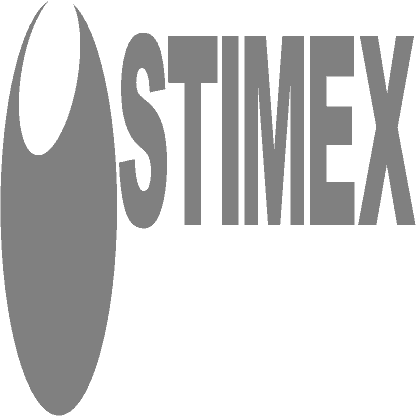Pharmaceuticals in Uzbekistan: Ready-made industry solutions for water treatment systems
Pharmaceuticals in Uzbekistan:
Ready-made industry solutions for water treatment systems
The pharmaceutical industry is one of the most important, but at the same time complex - structured branches of the chemical industry, characterized by large number of sub-sectors, high level of research and development and significant capital expenditures. And it is difficult to dispute the fact that the products of the modern pharmaceutical industry are of great importance for the health of the ever-growing population of the planet.
The industry is characterized by permanently high rates of growth in production and profits, and the medicines demand level in the world and in individual countries practically does not depend on the current state of the economy, on its ups and downs. The pharmaceutical industry is currently acting as one of the important sectors of the world economy, which seriously affects the situation in neighboring areas: healthcare, insurance business, finance, etc.
Pharmaceutical industry in Uzbekistan is not an exception, which has achieved high results in recent years, has increased the number of manufacturers of medicines to 146 enterprises. Currently, enterprises of the industry produce modern high-quality medicines of more than 2 thousand items, which belong to 35 pharmacotherapeutic groups and are used in 28 directions of medicine. These are injection solutions, tablets, capsules, ointments and gels, tinctures, syrups, as well as 177 types of medical products. At 42 enterprises, the ISO-9001 quality management system was introduced, at eight enterprises - international standard GMP (Good manufacturing practice).
According to the results of 2016, the share of domestic medicines in the total volume of products represented on the country's pharmaceutical market was 55%. But according to the approved Program for the localization of production of finished products, components and materials for 2017-2019, in the pharmaceutical industry, during this period, realization of 179 projects for the production of previously imported medicines was launched, which implies construction and modernization of the production capacities of the industry based on modern technologies.
Undoubtedly, development of modern technologies and their introduction into production, increasing the productivity and volume of production is the dialectic of the modern production process and it cannot be stopped. But the current trend, as a rule, always assumes, along with evolutionary-positive influence, the downside - the growth of the risk of negative impact on the environment. And as a reaction to this, the environmental legislation of most countries is constantly being improved and dictates new rules for the operation of enterprises, including in Uzbekistan. And one of the main limitations and standards in this sector are strict requirements to industrial water-treatment facilities.
Pharmaceutical wastewater is very complex in its composition. This is exacerbated by the specific requirements for such type of manufacture, its flexibility, which is associated with the ever-changing demand for pharmaceutical products. Accordingly, proper preparation of the terms of reference, namely comprehensive and authentic information on the composition of sewage in a particular production area is extremely important in solving the problem of wastewater treatment. And if these data are not collected correctly - this jeopardizes the development of incorrect technological scheme, and, consequently, incurrence of significant financial costs at its replace. As a matter of fact, problem of depuration is not be solved.
The following is a summary of the specificities of water pollution in certain production processes and effective process flows that are recommended for waste water treatment in a pharmaceutical company.
In the manufacture of pharmaceuticals, wastewater must be exposed to thorough sterilization prior to discharge into the environment. The most effective way, which guarantees the complete destruction of infectious microorganisms, is thermal sterilization of effluents.
During the process of sterilization, in the wastewater all vital microorganisms are eliminated, viruses, plasmids, biological agents and DNA fragments are deactivated. Such deactivation completely destroys biological activity of microorganisms and biological agents.
The most effective and reliable methods of disinfection of infectious wastewaters are incineration and the method of thermal deactivation by steam. Only with the inability to apply heat treatment other methods of treatment of infectious effluents should be used.
…………………
………………………………………………………………………………………………………………………………………………………………..
Exhausting of air from the process
The temperature and time of effluent sterilization are the main factors for successful thermal disinfection of waste water. When the waste water is heated (temperature 121 ° C (2 bar)) even heat-resistant spores of Bacillus stearothermophilus and free parts of DNA are eradicated in 15-20 minutes, this occurs in the standard process of thermal disinfection. There are special cases when, for example, a thermal decontamination mode can be used, providing a temperature of 134 ° C (3 bar) and endurance for 120 minutes.
Based on the specific conditions of the Customer, thermal wastewater disinfection plants are designed, as they are complex devices and considering that infectious wastewater must be cleaned, the information provided by the potential Customer should be 100% reliable and exact.
On the example of the process of wastewater disinfection in the production of vaccines, we can learn how wastewater thermal sterilization plant of batch action operates with a capacity of 5 m3 per day.
Such installations have a slightly higher level of operating costs, in comparison with equipment for continuous decontamination, but it should be considered that they require less time and effort to monitor and document the decontamination process and this method is the safest and most reliable in the disinfection process of effluents. In the cost estimate, most of expenses covers the cost of generating steam during the operation of the wastewater decontamination plant. But due to equipping the units with the heat recovery system, energy efficiency is high-ranking, as usual.
Fully automatic control or manual control
Infected wastewater enters the buffer tank with a volume of 1 m3. It has a thermally insulated coating and, if necessary, can also be sterilized. The exhaust air line is equipped with a sterilization filter to ensure that dangerous spores do not enter the environment. Installation of thermal disinfection of sewage can operate in fully automatic or manual control mode. Once the water level in the buffer tank reaches the programmed value, the first of the two reactors is filled with 500 liters of infected effluent. To achieve maximum performance, thermal deactivation unit is equipped with two reactors.
Sterilization reactor is a tank with capacity of 0.75 cubic meters with a reliable double thermal insulation. The reactor is equipped with the necessary automatic power control systems. The whole facility is made of stainless steel 1.4571 rank, and the exhaust air is sterilized on a special filter with electric heating.
The process of thermal sterilization of effluents starts after reaching a predetermined volume of filling the reactor. Operation, time and temperature of the sterilization facility is carefully monitored, controlled and documented in automatic mode.
Reactors of intermittently operating wastewater sterilization plant
Heating of the first sterilization reactor is carried out by direct injection of steam from the in-production steam line. Inside the machine, set temperature is maintained at 121 ° C for 20 minutes. Then, disinfected effluents heat the second reactor, flowing through its heat jacket. Such solution makes possible to reduce significantly consumption by the energy wastewater and water for cooling disinfection facility.
In order to prevent stagnant zones inside the pipelines and to equalize the temperature during the deactivation of effluents, a special pump for recirculating hot water is installed inside the sterilization reactor. After the sterilization process is completed, the wastewater is cooled to a temperature of 35 ° C with cooling water inside the double jacket and discharged to the city sewage system.
This example of the implementation of the thermal disinfection of sewage confirms the reliability and efficiency of the deactivation process in the pharmaceutical industry.
As can be seen from the presented data, the design of the most efficient drain and water treatment systems, taking into account analytical calculations of all the economic and territorial features of the target industry, construction (reconstruction) of facilities, production of special equipment, inlet of engineering communications and the installation and commissioning operations require the integrated involvement of highly skilled personnel of various specializations - engineers, economists, ecologists, etc.
As a rule, design and construction services for water disposal and water treatment facilities are provided by specialized design institutes, and specialized production facilities are engaged in the production of engineering equipment. In addition, to obtain guarantees of compliance with all technical and economic requirements, the customer requires the services of specialized companies for technical supervision and construction expertise. And the customer, in addition having significant financial costs, spends a lot of time and effort to agree on all the necessary steps in various instances or to find universal service providers for all of the above requirements.
For today in the Republic of Uzbekistan the supply of such a complex of services can afford only a small number of organizations. And one of them is LLC "UBI Consulting".
UBI Consulting LLC, certified according to the international standards ISO and OHSAS is a diversified engineering consulting company, it is a distributor of the leading manufacturers of treatment facilities and can provide production and delivery of container-type engineering equipment made of fiberglass, HDPE, metal, underground and aboveground, treatment of industrial, storm, domestic wastewater, as well as - equipment for the treatment facilities: pumping equipment, gratings, screens, etc., with simultaneous provision it services to ensure:
- Design;
- Surveys;
- Repair;
- Replacement of the equipment;
- Scheduled and unscheduled maintenance;
- Training of staff;
- Operation of treatment plants;
- Installation works;
- Pre-commissioning works;
- Manufacture of standard and non-standard equipment;
To date, production of treatment facilities of industrial scale and components to them has not yet been established on the territory of the Republic of Uzbekistan, and the choice of UBI Consulting LLC as a supplier of ready-made and approved solutions for pharmaceutical companies will become for customers key success factor of goals achievement and will become sustainable Base for further mutually beneficial cooperation.
Author: Abdulaziz Ibragimov - Director, UBI Consulting Design, supply and commissioning of specialized treatment facilities for various enterprises of Uzbekistan https://www.facebook.com/permalink.php?story_fbid=765098286973343&id=754385321377973&substory_index=0 https://www.linkedin.com/groups/10336517
 КАТАЛОГ СТАТЕЙ.
КАТАЛОГ СТАТЕЙ.




